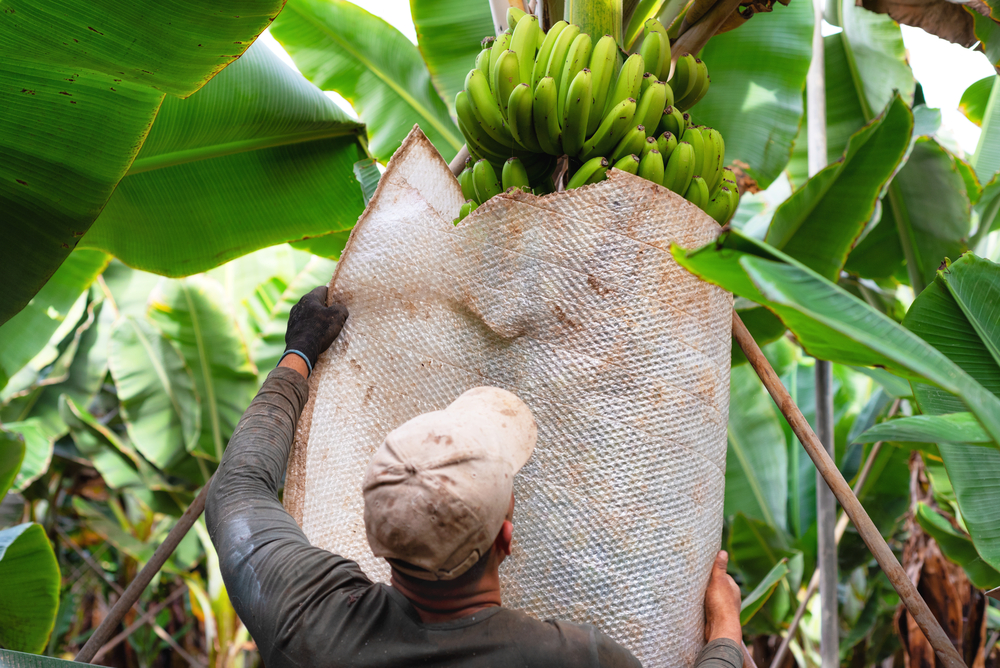Though its origins are from Asia, TR4 has been spreading westward and in 2019, it was detected in Colombia, setting off alarms in the tropical zones of Latin America and the Caribbean, whose countries are among the largest banana producers and exporters in the world. Later, in 2021, a strain was detected in Northern Peru.

San Jose, 31 March 2022 (IICA) –The coalition to fight against the pest threatening global banana production and, in turn, the food and nutritional security of millions of families, reported on its achievements and set its priorities for the remainder of 2022.
Representatives from the private sector, academia, civil society organizations, government agencies and international bodies that form part of the Global Alliance for Cooperation to Fight against Fusarium TR4 held a meeting in which they demonstrated the strengths of their work despite the difficult scenario presented by the COVID-19 pandemic and, more recently, by the impact of the war in Eastern Europe.
Though its origins are from Asia, TR4 has been spreading westward and in 2019, it was detected in Colombia, setting off alarms in the tropical zones of Latin America and the Caribbean, whose countries are among the largest banana producers and exporters in the world. Later, in 2021, a strain was detected in Northern Peru.
The Alliance stakeholders, committed to sustainable agriculture, began working jointly in January 2020 with a focus on spread prevention, genetic development, and consumer education.
The coalition was officially formed a year later, with the primary objective of curbing the spread of the “banana pandemic” and, in the medium and long term, to research and develop genetic improvement solutions.
The Inter-American Institute for Cooperation on Agriculture (IICA) is the secretariat of the Alliance, whose executive committee also includes the International Institute of Tropical Agriculture (IITA), the National Banana Corporation (CORBANA) of Costa Rica, Bayer and Chiquita Brands International, Red Solidaridad and Wageningen University in the Netherlands.
“In more than two years of work, we have consolidated and strengthened our alliance. In different research institutions much progress has been made in gene editing, with the purpose of creating a disease-resistant banana, but we know that this task could take between 5 and 7 years. That is why today agricultural management is fundamental so that the pest does not spread”, explained Gabriel Rodríguez, Secretary of the Alliance’s Executive Committee and IICA Representative in Paraguay.
The priorities set by the coalition for this year include advancing scientific research, since the disease does not currently have a cure and it puts the entire fruit value chain at risk, from small growers and their families to the companies that market the fruit and the countries with large volumes of exports.
It was also agreed to focus on consolidating a communication strategy aimed at producers, consumers and potential international donors who could collaborate with a task that is essential to ensuring the continuity of banana cultivation as we know it today.
“We continue working towards advancing our agenda. Today is a crucial moment to make decisions, which is why we have a proposal for programs and projects, including the research effort to achieve a banana that mitigates the effects of Fusarium and a broad communication strategy that involves the entire banana chain”, stated IICA’s Director General, Manuel Otero.
“We need to further strengthen the Alliance to save bananas, which are among the 10 main foods in the world. What is at stake is food security and, of course, the fate of producers and consumers”, Otero warned.
More information:
Institutional Communications Division
comunicacion.institucional@iica.int











